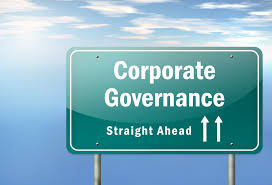Challenges for Board Decision-Making (Part III of IV)

Corporate boards face serious challenges – business disruption from the pandemic and a slowing global economy. Directors have to focus on these two issues for at least the next 12 months.
But the issue plate contains other significant risks. Three out of five directors have identified cybersecurity as a significant risk along with the current crisis climate. The impact from a cyber-event is significant and can cause serious financial and reputational harm. Board members still recognize this in the current pandemic crisis.
In this crisis environment, corporate boards have to increase interaction and collaboration with management. The challenges facing corporations and our national economy dictate that corporate boards increase coordination, communication and strategic collaboration.
Boards have to improve oversight and monitoring functions but continue to lack basic skills in this area. Corporate legal and compliance professionals have to train boards in this important area. Board oversight of strategic activities is paramount and usually executed to the detriment of oversight of other important activities including compliance risks.

Another often ignored area is the development and attraction of human talent. Corporate boards often ignore human capital issues such as diversity, talent, skillsets, and other important factors. The issue is critical in this economy and board members need to work closely with management to address these needs.
Board skillsets are often narrow as well. With new and innovative skills, companies have to reflect this transformation at the board level. A board consisting of former CEOs and finance experts is a recipe for narrow thinking and dampened innovation.
Corporate boards have to become better time managers. As responsibilities and information increase, boards have to allocate time efficiently to address all outstanding risks. To further additional responsibilities, boards should review their committee structure. Instead of a traditional set of committees, companies should increase specialized committees as a way to leverage resources and activities.
Board technology and information reporting has to improve. Technology change has had a significant impact on our economy, societal influence, political change and information dissemination. Board members have to educate themselves on technology, the use of technology and the important impact it is having in the marketplace.
In this new technology environment, risk management has become a more complex and difficult challenge. Board members have to demand robust information from management on risks, including enterprise risks, legal and compliance risks and other disruptions. In this area, boards cannot just rely on CEOs and CFOs to identify these risks; instead, boards need to hear from independent voices within the company such as internal audit and ethics and compliance.

Corporate boards have to move outside of the regular quarterly meeting structure to include off-quarter business reviews, strategy review and other important issue reviews. Such a procedure will allow the board to examine issues in greater detail and understanding.
In the area of compliance, a large number of corporate board members blindly believe they have an “ethical” culture and a “speak-up” culture without any information or data to confirm these conclusions. Further, board members continue to ignore the importance of third-party risk management, mostly because they do not understand the issue and the significance to the company’s operational risk.
Board members are slowly considering how to incentivize senior management to commit to ethics and compliance issues. This is a trend that could result in increased focus on incentives and senior management ownership of ethics and compliance.















